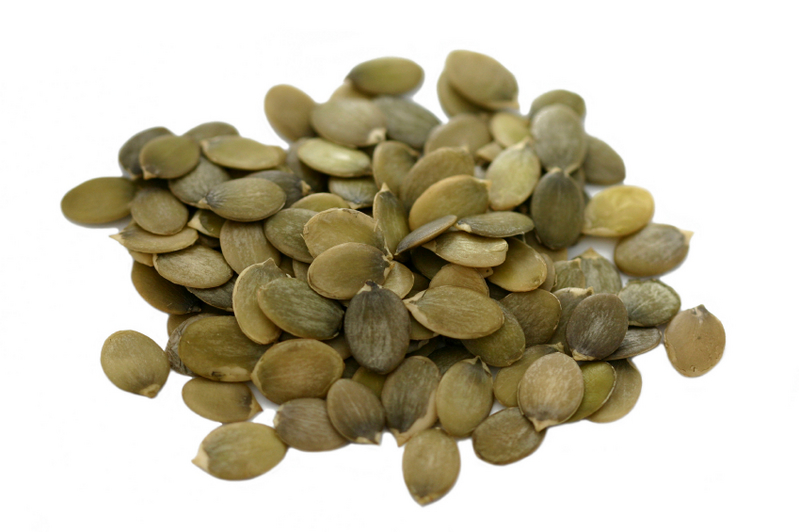 Continuing with our pumpkin theme, pumpkin seeds are another great fall favorite. Although sometimes discarded after carving pumpkins, many use them to make a healthy snack. Pumpkin seeds were consumed by Native Americans for hundreds of years and were also thought to have medicinal qualities. Also found in traditional Mexican cuisines, European Explorers took pumpkin seeds back to the Old World. Today, pumpkin seeds’ popularity is on the rise as an everyday addition our diet.
Continuing with our pumpkin theme, pumpkin seeds are another great fall favorite. Although sometimes discarded after carving pumpkins, many use them to make a healthy snack. Pumpkin seeds were consumed by Native Americans for hundreds of years and were also thought to have medicinal qualities. Also found in traditional Mexican cuisines, European Explorers took pumpkin seeds back to the Old World. Today, pumpkin seeds’ popularity is on the rise as an everyday addition our diet.
Nutritional Highlights:
- Pumpkin seeds are very rich in minerals such as phosphorous, magnesium, iron, manganese, zinc and copper.
- They also are a supply of vitamins A, B1, B2, B3, protein, the phytosterol beta-sitosterol.
- A one-third cup serving of shelled pumpkin seeds is approximately 90 calories.
Health Benefits:
- Pumpkin seeds are shown to promote a healthy prostate due to their high levels of essential fatty acids, zinc and phytosterols.
- Beta-sitosterol, found in pumpkin seeds, can help block the conversion of testerone into a metabolite – helping to prevent prostate enlargement.
Pumpkin seeds are much more versatile than they are often given credit for. They are an excellent addition to salads, or even a great topping to cereal. For an unconventional approach, try sautéing pumpkin seeds with carrots, broccoli, and onions and serving it over a grain. For a more traditional take, sprinkle 3 cups of pumpkin seeds with 1 teaspoon of ground cinnamon, ½ teaspoon of ground cloves, ½ teaspoon of nutmeg and a pinch of salt. Simply roast the coated seeds for 30 minutes at 300 degrees for a fun and spicy spin on the traditional pumpkin seed snack.



